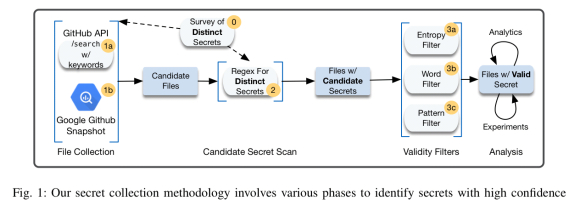Numerous privacy scandals over the past couple of years have fueled the need for increased examination of tech companies’ data tracking practices. While the ethics around data collection and consumer privacy have been questioned for years, it wasn’t until Facebook’s Cambridge Analytics scandal that people began to realize how frequently their personal data is shared, transferred, and monetized without their permission.
Cambridge Analytica was by no means an isolated case. Last summer, an AP investigation found that Google’s location tracking remains on even if you turn it off in Google Maps, Search, and other apps. Research from Vanderbilt professor Douglas Schmidt found that Google engages in “passive” data collection, often without the user’s knowledge. His research also showed that Google utilizes data collected from other sources to de-anonymize existing user data.
That’s why we at Digital Content Next, the trade association of online publishers I lead, wrote this Washington Post op-ed, “It isn’t just about Facebook, it’s about Google, too” when Facebook first faced Capitol Hill. It’s also why the descriptor surveillance advertising is increasingly being used to describe Google and Facebook’s advertising businesses, which use personal data to tailor and micro-target ads.
Consumers are on alert. DCN surveyed a nationally representative sample
to find out what people expect from Google — and, as with a similar
study we conducted last year about Facebook, the results were unsettling.
Our findings show that many of Google’s data practices deviate from consumer expectations. We find it even more significant that consumer’s expectations are at an all-time low even after 2018, a year in which awareness around consumer privacy reached peak heights.
The results of the study are consistent with our Facebook study: People don’t want surveillance advertising. A majority of consumers indicated they don’t expect to be tracked across Google’s services, let alone be tracked across the web in order to make ads more targeted.
Nearly two out of three consumers don’t expect Google to track them across non-Google apps, offline activities from data brokers, or via their location history.
There was only one question where a small majority of respondents felt that Google was acting according to their expectations. That was about Google merging data from search queries with other data it collects on its own services. They also don’t expect Google to connect the data back to the user’s personal account, but only by a small majority. Google began doing both of these in 2016 after previously promising it wouldn’t.
Google’s personal data collection practices affect the more than 2 billion people who use devices running their Android operating software and hundreds of millions more iPhone users who rely on Google for browsing, maps, or search. Most of them expect Google to collect some data about them in exchange for use of services. However, as our research shows, a significant majority of consumers do not expect Google to track their activities across their lives, their locations, on other sites, and on other platforms. And as the AP discovered, Google continues to do some of this even after consumers explicitly turn off tracking. With new laws in Europe and California and with federal discussions about how to bring similar protections to the rest of America, it’s critical to understand what consumers actually demand, align expectations to those demands, and rebuild trust in our industry. Consumers expect nothing less.
Smith College.

